Life
Sign up for our newsletter
We summarize the week's scientific breakthroughs every Thursday.
-
 Health & Medicine
Health & MedicineWith help from pig tissue, people regrow muscle
Noncellular material implanted in patients attracts stem cells to fix injuries.
By Nathan Seppa -
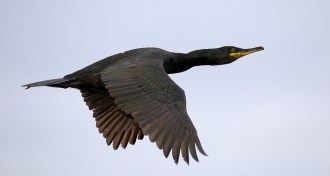 Environment
EnvironmentPrestige oil spill linked to drop in seabird chicks
European shag in colonies affected by the 2002 Prestige oil tanker spill produced fewer chicks than birds in oil-free colonies.
-
 Science & Society
Science & SocietyStudents retain information better with pens than laptops
Compared with typing on a laptop, writing notes by hand may lead to deeper understanding of lecture material.
-
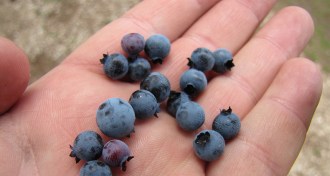 Life
LifeDietary fiber may curb appetite by acting on brain
Fiber's ability to curb appetite may come from gut molecules traveling to and acting on the brain, not the gut alone.
-
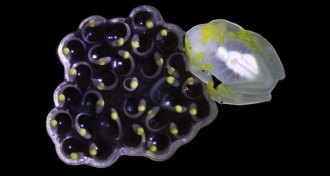 Animals
AnimalsAbandoned frog eggs can hatch early
If their father doesn’t keep them hydrated, frog embryos react by hatching early.
By Susan Milius -
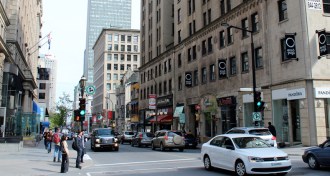 Neuroscience
NeuroscienceHow brains filter the signal from the noise
Our brains can distinguish a single voice in the middle of a noisy street. A new study in ferrets shows how auditory systems might separate the signal from the noise.
-
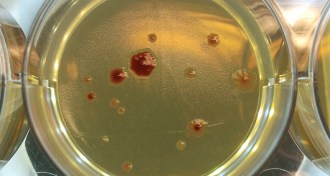 Genetics
GeneticsE. coli’s mutation rate linked to cells’ crosstalk
When E. coli cells are in smaller crowds, their genes mutate at an increased rate.
-
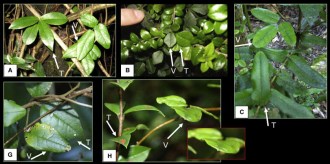 Plants
PlantsSouth American vine is a masterful mimic
The vine Boquila trifoliolata changes the shape of its leaves to match its host and avoid getting eaten.
-
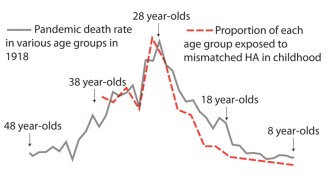 Life
Life1918 flu pandemic linked to human, bird virus gene swap
The 1918 pandemic flu, which killed up to 50 million people, may have come from a human virus and a bird virus swapping genetic material.
-
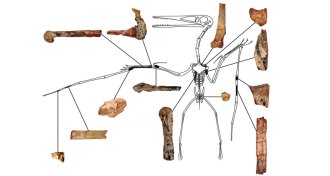 Paleontology
Paleontology‘Hidden dragon’ fossil is oldest flying reptile
Researchers have unearthed the oldest pterodactyl ever discovered: Kptodrakon progenitor soared over the Earth 163 million years ago.
By Meghan Rosen -
 Genetics
GeneticsY chromosome gets a closer examination
The Y chromosome may play a larger role in Turner syndrome and in health and disease differences between males and females than previously thought.
-
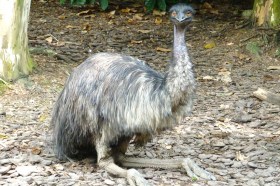 Animals
AnimalsA guide to the world’s biggest flightless birds
A rhea on the loose in England has prompted warnings about approaching the bird. From ostriches to cassowaries, here’s your guide to friendly and unfriendly big birds.